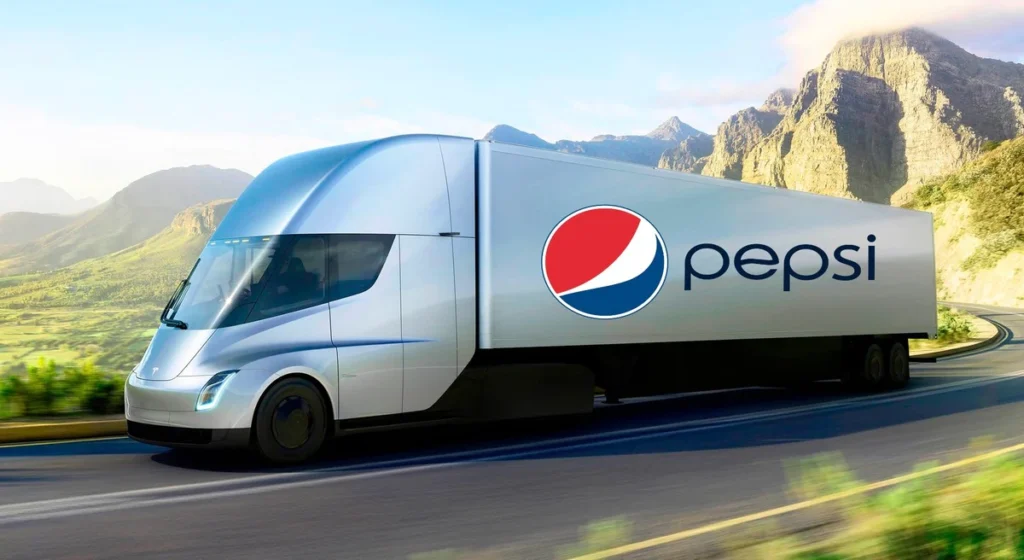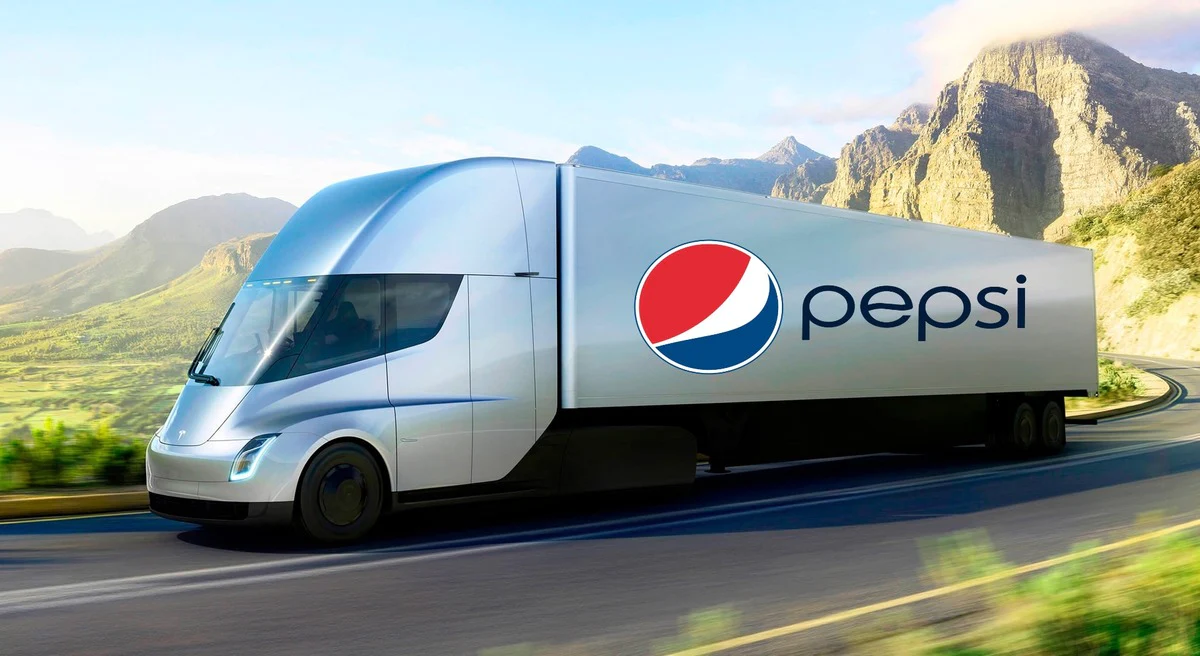Challenges Mount for Tesla as PepsiCo Underutilizes Electric Truck Fleet
Introduction
In a significant development for Tesla’s ambitions in the electric truck market, PepsiCo, a key customer, has reported that it is only utilizing 36 of the promised 100 Tesla Semi trucks. This situation highlights the operational and delivery challenges facing Tesla, which initially received payments for these trucks back in 2017.
Unfulfilled Promises and Delivery Delays
PepsiCo’s plan was to leverage Tesla’s electric trucks to distribute popular products like Cheetos, Lays potato chips, and Pepsi sodas. However, the actual deployment of these trucks has fallen short of expectations. As of this month, the food and beverage giant has only 36 trucks operational, despite Tesla’s earlier promises of delivering a full fleet.
Broader Impacts and Market Shifts
The shortfall in delivery has not only affected PepsiCo but also signals broader challenges for Tesla in scaling up its truck manufacturing operations. Other major companies such as Sysco, UPS, and Walmart Canada have been kept waiting, which has nudged them towards exploring electric trucks from Tesla’s competitors.
Struggles in Production
Tesla’s difficulties are exacerbated by its broader corporate challenges. With growth in its consumer electric vehicle sector slowing, the company has been forced to cut prices, impacting its financial margins. Additionally, a decision to cancel the launch of a budget-friendly car has further dampened investor expectations.
Environmental Stakes and Subsidies
The significance of transitioning to electric trucks like the Tesla Semi is underscored by environmental concerns. Diesel trucks are major contributors to pollution, and with the transportation sector accounting for a substantial portion of U.S. emissions, the shift to electric trucks is critical. The Biden administration has incentivized this shift by offering substantial subsidies and grants to companies investing in electric trucks.
PepsiCo’s Strategic Shift and Infrastructure Challenges
Despite the initial excitement, PepsiCo has adjusted its strategy, focusing on effectively utilizing the 36 Tesla Semi trucks currently in its fleet. The company cites the need for better technological infrastructure and the complexity of integrating new technologies into its operations as reasons for the slow rollout.
Global Competition and Alternative Options
As Tesla struggles to meet delivery timelines and production targets, competitors like Daimler Truck with their Freightliner eCascadia model are gaining ground. Notably, Daimler’s electric trucks are already operational in various companies’ fleets, showcasing a faster deployment rate compared to Tesla.
Tesla’s Internal Fleet and Expansion Plans
Tesla itself has deployed nearly 100 of its Semi trucks for internal logistics, indicating the trucks’ operational capabilities. The company is also expanding its manufacturing facilities in Nevada and considering a setup in Europe to boost production.
PepsiCo’s Commitment to Sustainability
Jim Andrew, PepsiCo’s Chief Sustainability Officer, emphasized the company’s ongoing efforts to build the necessary infrastructure to support an electric fleet. This includes developing capabilities around vehicle servicing and charging infrastructure to ensure the successful deployment of electric vehicles.
Investor Concerns and Future Outlook
Investor sentiment is cautious, with concerns about the slow pace of electric truck rollouts by major companies like PepsiCo. Shareholders are keenly watching the company’s next moves, especially with the upcoming annual meeting where the impact on biodiversity and the company’s environmental commitments will be key discussion points.
Conclusion
Tesla’s journey in the electric truck market is proving more complex than anticipated, with significant hurdles in both production and customer satisfaction. For companies like PepsiCo, the transition to an electric fleet is a delicate balance between innovation, infrastructure readiness, and the reliability of their partners like Tesla. The coming months will be crucial for Tesla as it strives to fulfill its promises and regain trust among its commercial customers.
Related: Pepsico Schweppes Recall

Source: MSN



